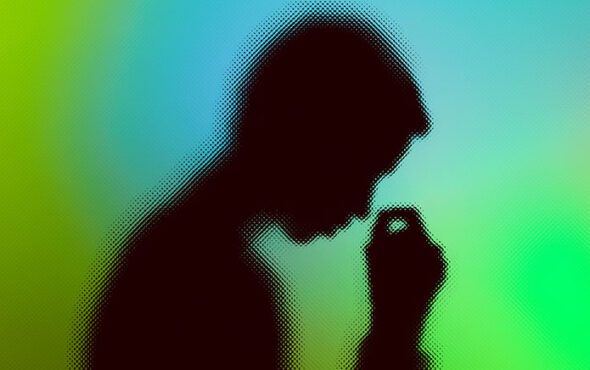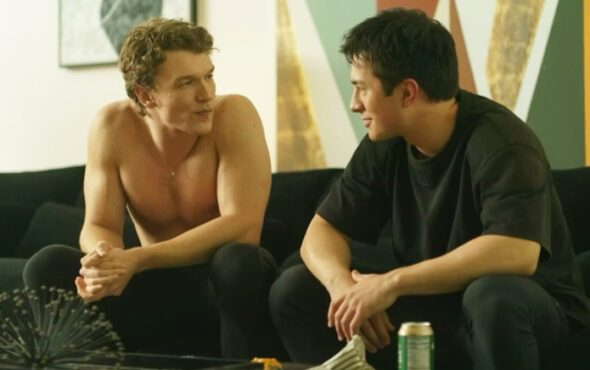
A new report has revealed that just under half of gay and bisexual men said they have been affected by sexual assault, with 85% of those affected saying they would not report the incident to the police.
Survivors UK, a leading national organisation helping victims of sexual violence and domestic abuse, have released their findings after investigating the experiences of sexual violence towards gay and bisexual men.
The main findings in the report highlight the frequency of sexual violence towards gay and bisexual men, with the majority of respondents detailing that they would not speak to the police after the incident due to fear of speaking out.
The report highlighted the specifics of sexual violence and the locations that it can happen, with the highest response being in public spaces such as a bar or a club, highlighting again that sexual violence doesn’t always occur with people the victim may know.
Alex-Feis Bryce, CEO of Survivors UK and an out survivor of sexual abuse shared how his own personal experiences of sexual violence in a queer space has shaped his identity as a gay man within the community ever since.
“I’ve also always had the sense – perhaps my imagination or some projected internalised self-blame or shame – that many of the gay and bi men who I’ve told about what happened to me reacted in a way that suggests that they saw experiencing sexual violence as in some way a rite of passage or an inevitability for men who have sex with men,” he said.
Alex also explained that the research highlights how gay and bisexual men do experience higher levels of sexual violence, yet don’t receive the support or aftercare that is essential to their healing after the incident has happened.
“My experience of being raped is not the only time I’ve experienced sexual violence in a queer setting and, as this research demonstrates, gay and bi men experience higher levels of sexual violence than reported in any studies of men of all sexual orientations,” he said.
“In commissioning this research, we wanted to explore sexual violence experienced by gay and bi men to improve our knowledge about where and how it happens in the hope that we can raise awareness, improve service provision and, if required, advocate for preventative action.”
This is just the tip of the iceberg when it comes to exploring the ways in which LGBTQ+ people experience sexual violence. The report states that it doesn’t identify how many of the respondents are trans, yet are aware that support and supervision for trans survivors is something they are increasingly worried about.
A statement from Claire Waxman, London’s Independent Victims’ Commissioner said: “I’m clear that all victims must have the confidence to access justice and get the support they deserve.
“We can and must do more to ensure that these men are empowered to seek the help they need to cope and recover. That’s why the Mayor is investing over £1.7m in the London Survivors Gateway – supporting victims of rape, sexual assault, or any form of sexual violence.”
As a community, the report investigated our awareness of sexual violence and rape, and found that 37% of respondents were aware that it happens within our community. However, 23% still acknowledged that they are aware there is a lack of understanding or concern when it comes to the experiences of LGBTQ+ people who have experienced sexual violence.
Other figures of note state that just over 1 in 4 respondents have had a sexual experience where they’ve consented to something that then became something they didn’t consent to. Equally, 1 in 5 gay or bisexual men stated that they have consented to having sex with one person, but then it ended up involving someone else without their consent.
Leni Morris, CEO of GALOP – the LGBTQ+ anti-abuse charity helping members of our community who have suffered sexual violence or domestic abuse – has commented on the findings, highlighting the importance of LGBTQ+ education within schools as a way for queer people to not have to figure these things out on their own.
“We [GALOP] see every day how invisible gay and bi men who are victims of sexual assault can feel,” Leni Morris said.
“We also see how few places gay and bi men feel they can safely turn for help – and we know that many will never come forward at all, leaving them to deal with what’s happened to them without professional support.
“With relationship and sex education only recently becoming LGBT+ inclusive in schools, many LGBT+ people have been left to navigate sex, consent, and relationships alone for too long, and the system continues to let down LGBT+ survivors of sexual violence.
“We must make sure the public narrative around sexual assault includes all victims, and that every survivor of sexual violence is able to access the support they want and need around what has happened to them.”
The statistics show the experience of sexual violence and rape for gay and bisexual men is on the increase, and spaces like Survivors UK and Galop are doing all that they can to ensure that not just gay and bisexual men, but all LGBTQ+ people have a space to exist within as survivors.
They also note that the common misconceptions and myths surrounding gay men in the criminal justice system – that gay men are more promiscuous and therefore consent isn’t as important – need to be dismantled and “not given oxygen”.
To find out more visit Survivors UK here.



